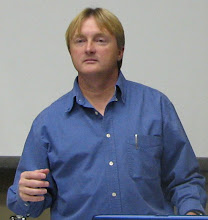
This year's camp was an incredible success. Once again we were blessed to have the American Red Cross secure funding for the summer camp enabling us to train 40 high school students from around the state.
Arkansas schools are not exempt from the daily potential for crisis, whether the result of the forces of nature or of the accidental or deliberate actions oh humankind. Events of recent years have prompted school officials across Arkansas to think about crisis preparedness, but few school have in place comprehensive crisis plans at this time.
At present crisis plans in Arkansas schools are one-dimensional for the most part and fail to address fully the three essential components of crisis preparedness: prevention, intervention, and response. As well, these plans typically omit any meaningful roles for students beyond those of victims or perpetrators.
Typical school plans identify a chain of command that is comprised of a list of adults who are responsible for some assigned function in the event of a crisis. Beyond such a list, the plans are limited to identification of evacuation routes and procedures and a listing of security rules, regulations, and policies.
In compliance with school plans evacuation routes are posted and practiced in preparation for fires. Staff and students are instructed where to go and how to sit while waiting for a storm. Teachers are instructed to lock their doors to keep out potentially violent intruders allowing into their classrooms only those with appropriate identification. As an added precaution, in a number of Arkansas schools, students are regularly scanned for weapons, their lockers are searched, and they are prohibited from wearing certain kinds of clothing or carrying backpacks.
An adult chain of command, planned evacuation routes, locked doors, scanners, and searches are important components of disaster preparedness in schools today. As important as they are, however, these common components do not adequately prepare a school to respond to a crisis. Leaving so much to chance, they evoke significant questions.
What happens if…?
What happens if the school building is destroyed by a tornado during the middle of the school day? What do the students do when as they uncover their heads and unfold themselves from their crouched positions they find themselves surrounded by debris, live power lines, and injured friends and teachers? What do the students do when their teacher is trpped unconscious under concrete blocks and ceiling beams?
What happens if on a cold, winter morning during a first period exam the math teacher slumps suddenly over her desk and fails to respond when her students call out to her?
What happens if a sudden, deafening round of gunfire explodes in the crowded school cafeteria at the height of lunchtime and bodies lie lifeless where only a moment before hungry students had stood in line contemplating broccoli or salad bar?
What does happen to the students who are left enveloped by the eerie, quiet silence in the instant that follows the wake of savage devastation?
What happens in any number of imaginable or unimaginable scenarios where students, along with their teachers, are faced with struggling through the first awful moments after the onset of suddent, unexpected crisis?
For the most part, Arkansas schools, like schools across the nation, have a plan for where students should be throughout the school day. What Arkansas schools do not have, like schools across the nation, is a plan for what students should do when something catastrophic occurs that disrupts or disables the adult chain of command. Likewise, adults in the school have little idea about what to do in the immediate aftermath of crisis.
Then what is the answer to the question “What happens if?” In the aftermath of crisis maps and drills may not provide useful direction. The locked doors, scanners, and school uniforms may not be useful either. Without a planned focus on student leadership and without prior education for students and staff about what should happen chaos, panic, additional injury, and preventable death are most likely what will happen.
To those of us involved, we believe the Rapid Response Team Project is a significant part of the solution. Our basic philosophy is that if we teach young people emergency management and medical skills in times of crisis they will be able to transform themselves from victims to survivors. It is that sense of empowerment which motivates all of us to continue our association with the project and promotes our belief that these young people will make this world a better place to live.








